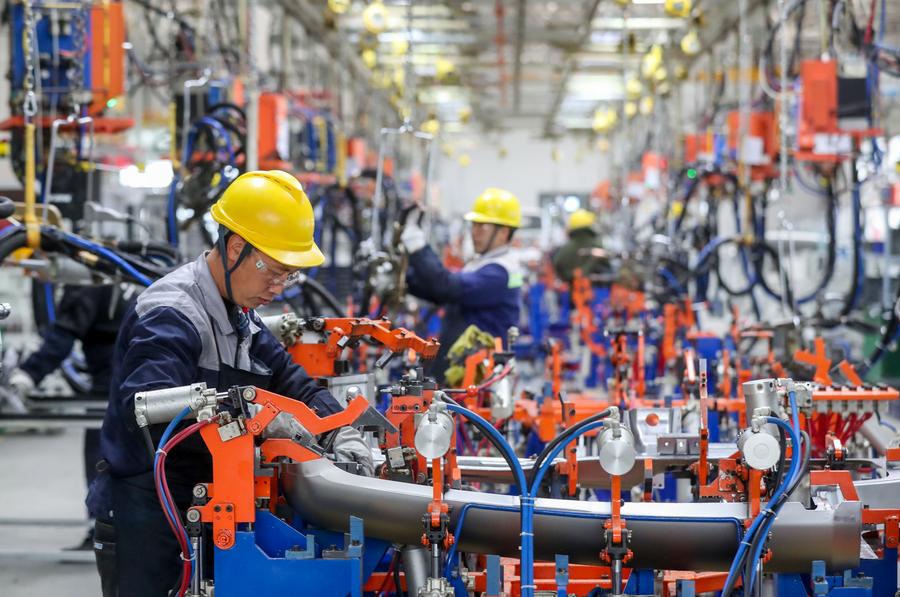
Employees work at a workshop of an automobile enterprise in Guiyang, Southwest China's Guizhou province, Dec 11, 2024. [Photo/Xinhua]
DAVOS, Switzerland -- Measured by market size and growth rate, China is still full of opportunities and worthy of investment by global companies, said Joe Ngai, chairman of McKinsey & Company in Greater China, a worldwide management consulting firm.
Ngai reiterated his confidence in the fundamentals of the Chinese economy in an interview with Xinhua on the sidelines of the ongoing World Economic Forum (WEF) annual meeting in the Swiss Alpine town of Davos.
Judging from the economic data of the third and fourth quarters in 2024, China's economic growth has stabilized and will continue this trend in 2025, he said, adding that he is confident in the prospect of the Chinese economy in the medium and long term.
China's economy expanded 5 percent year-on-year in 2024, reaching its 2024 growth target despite growing challenges from domestic and global fronts.
In comparison with lower economic growth in major global economies such as Japan and the EU over the past two or three decades, Ngai said, "China's current economic growth rate can give companies enough room for development."
Amid geopolitical tensions and the backlash against globalization, Ngai predicted that the uncertainty facing the global economy may reach a historical high. For the global economy, how to find new growth frontiers has become a challenge that needs to be solved urgently.
While highlighting the new possibilities for economic growth through emerging technologies like artificial intelligence (AI), he also voiced concern about the risks posed by uneven development and the "winner-takes-all" phenomenon.
Over the next decade, AI will profoundly change the way businesses operate, he said. Some companies have already begun using AI to improve efficiency and reduce costs, but such companies represent less than 10 percent of the total.
Ngai said that AI applications in business are still in the early stages. To fully leverage the potential of AI, companies must also make adjustments to their organizational structure and internal culture to adapt to the intelligent age.
On the theme of "Collaboration for the Intelligent Age", the 2025 WEF annual meeting brings together nearly 3,000 participants from various regions and industries to discuss issues across five pivotal areas: Reimagining Growth, Industries in the Intelligent Age, Investing in People, Safeguarding the Planet, and Rebuilding Trust.